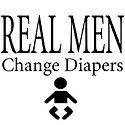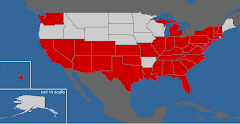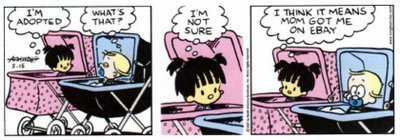
We've probably ALL been through the following in some manner, shape or form with all the on-line courses and required reading in the preliminary adoption process. But lest we forget, our agency sent us the following memo......
HOW TO HELP YOUR CHILD DEVELOP A POSITIVE RACE AND ADOPTION SELF-IDENTITY
Jaclyn Piotrowski, MSW
1. Refer to birth-parent, birth-culture, and birth-country in a positive light.
2. Be cautious and sensitive when talking about the adoption with others, while your child is in ear-range.
3. Talk about or plan to visit birth-country when time is appropriate for your family.
4. Be able to provide resources to your child about their birth-country/culture, without forcing the issue.
5. Allow your child to “grieve” their loss appropriately without taking it personal. This feeling is real to adoptees, and needs to be dealt with without the child feeling guilty.
6. Have a plan in place to affiliate with other support groups, adoptive family groups, or cultural groups.
7. Celebrate your child’s “adoption day” or “coming home” day.
8. Always provide a safe and open environment for your child to approach you with questions or discussions. It is important to find a safe balance between asking them questions and allowing them to come to you when they are comfortable.
9. Have ethnic dolls, role models, and friends of your child’s race so that they grow up with pride, not unfamiliarity of their own face.
10. Have a sense of humor!
11. ALWAYS be honest with your child and share information at an ‘appropriate’ age.
12. Emphasize gifts your child received from birth parents: facial features, talents, etc., even if they are different than yours!
13. The reasons for your child being placed for adoption were due to circumstances, NOT the child, make sure he/she knows that they did nothing wrong.
14. Do not judge birth parents. Remember: What you say about the birth parents, you are saying about your child.
15. Do not allow or accept racial/prejudicial remarks, jokes or comments in your presence. If you do, you are teaching your child that it is OK that others may be doing that about them.
16. Celebrate similarities ALONG with differences. If you just emphasize similarities, you’re down-playing the obvious differences, which may make your child feel shameful.
17. Integrate Christianity and “God’s Plan” for all.
18. Emphasize and reassure your children of your permanent and unconditional love.
*Keep in mind that some adopted children generally tend to be more sensitive to circumstances of serious illness, marital discord, death, separation, moves, financial upsets, transitions, and other major family losses. You want to emphasize that no matter what, you are there for your child.



 Pictures from Top to Bottom:
Pictures from Top to Bottom:



















